Eurovision 2022: why Ukraine will win most political song contest yet - according to Dr Eurovision
and live on Freeview channel 276
It’s the one week of the year that Europeans band together to sing, laugh and even cringe - it’s the Eurovision Song Contest.
The event, now in its 66th edition, is back and is bigger than ever.
Advertisement
Hide AdAdvertisement
Hide AdHowever, this year feels slightly different, with a twang of emotional gravitas.
Almost 200 million people will be watching as Ukraine takes to the stage to represent itself, only two and a half months after Russian tanks powered over the eastern border.
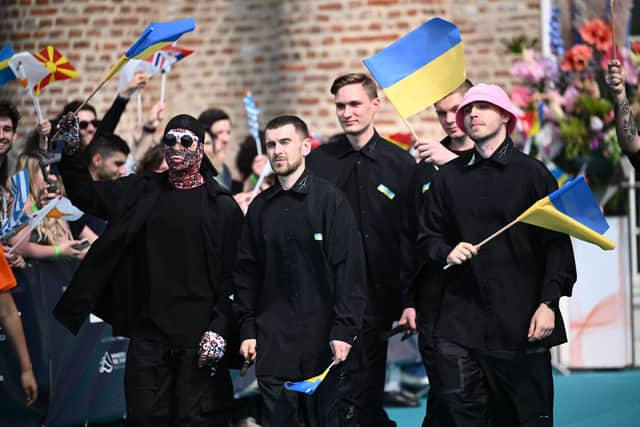

Whether or not you like Kalush Orchestra’s traditional folk-inspired rap-laden song, there is no doubt that it will do well with the voting masses.
With Europe’s biggest party - and biggest platform - a Ukrainian win could send a message of European solidarity to Putin and Russia.
But is it as simple as Ukraine winning the public’s heart?
Advertisement
Hide AdAdvertisement
Hide AdNationalWorld spoke to Dr Eurovision Paul Jordan about Ukraine’s chances this year, the symbolism of the contest and why the 2022 competition is set to be the most political affair yet.


What does Eurovision mean to Europe?
Since its inception in 1956, the Eurovision Song Contest has been one of the biggest non-sporting events in the world, with audiences averaging around 180million each year in the modern era.
‘It’s completely unique television, and I think that’s why Europe loves it so much”, says Paul.
“You love it, you hate it, or you love to hate it - but everyone watches. It brings Europe together for one night a year.
Advertisement
Hide AdAdvertisement
Hide Ad“Especially after the time we’ve all been through over the past few years, I think we need something like Eurovision.”
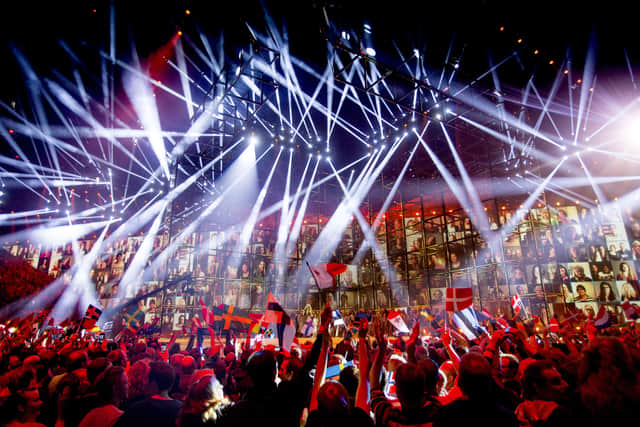

The contest made a comeback last year after the 2020 event was cancelled due to the Covid-19 pandemic.
“When it came back in 2021, I think everyone was looking for a bit of escapism, and it really was joyous. In the middle of things like Brexit, I think it gives us a feeling of being together with other countries.”
It’s this joining together of different nationalities, languages and cultures that is what is so often celebrated about Eurovision, often in the midst of unrest on the continent.
Advertisement
Hide AdAdvertisement
Hide Ad“You’ve got countries that don’t even have diplomatic relations. Armenia and Azerbaijan - they hate each other. They’re at war. And yet for that night, one night of the year, they set aside those differences and they share that stage.
“It’s very much needed. And obviously all eyes are on Ukraine this year. I think it’s going to be very interesting and probably a very emotional one as well.”
Is Ukraine a definite winner?
There is no doubt that Ukraine is currently favourite to win the competition.
Ukraine last won the contest in 2016, with Jamala taking the top spot after impressing European audiences.
Advertisement
Hide AdAdvertisement
Hide AdNow, the under-seige country will have the sympathies of Europe on its side going into the final, with a large public backing expected.
“I think they’ll win the public vote, there’s no doubt about that,” Paul explains.
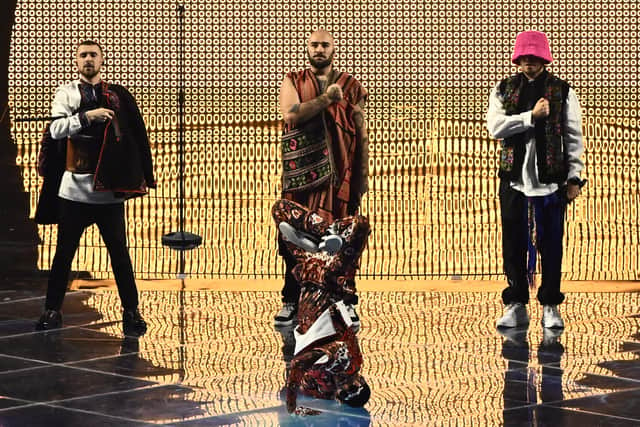

“Ukraine has been able to take part and the guys have been given a special dispensation to actually leave the country because they were actually fighting. The men are banned from leaving.
“So I think there’s going to be that there’s going to be the kind of emotional element attached to that.”
Advertisement
Hide AdAdvertisement
Hide AdBut Eurovision winners aren’t built on public votes alone. Performers have to impress expert juries from each country too, with the jury and televotes weighted equally in the results.
Differences in voting between the juries and public have led to surprising results in the past - so are Ukraine’s Kalush Orchestra guaranteed to pick up the points they need with the folk-inspired rap song ‘Stefania’?
“Sometimes there is a disparity between voting. Last time Ukraine won in 2016, they didn’t win either the jury or public vote but the way it weighed out they placed top overall, so it can definitely swing the vote.
“We know the public support will be huge so if the juries place the song lower, like seventh or eighth, it might just push them out of the top spot.
Advertisement
Hide AdAdvertisement
Hide Ad“It’s impossible to say if they’ll definitely win but Ukraine - I don’t think it’s a foregone conclusion. I think it will definitely come in the top three through the public vote.
“If Ukraine does go on and win, it will be an incredibly powerful symbol, but also on a human level it would be a clear message of solidarity.”
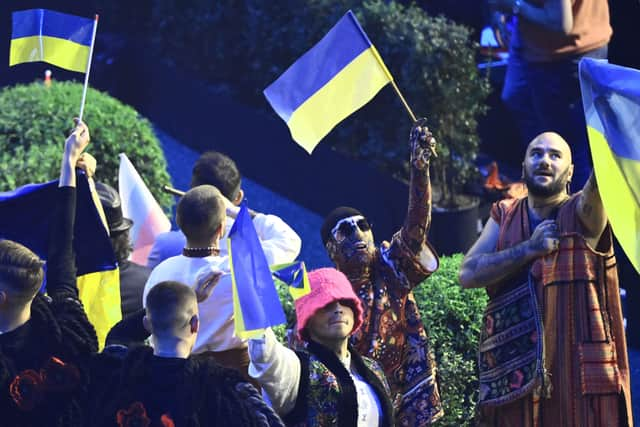

Where does the contest go from here?
Eurovision has existed during periods of political unrest and tension within the continent, but has often shied away from taking sides.
Organisers have even removed entries, songs and physically removed performers from the arena for making political statements on stage.
Advertisement
Hide AdAdvertisement
Hide AdHowever, this year the contest seems to have moved away from its apolitical sensibilities, after bowing to public pressure and expelled Russia from the competition for external political circumstances.
On 25 February, one day after its initial statement to not have the political climate interfere with the contest, the European Broadcasting Union (EBU) confirmed Russia would not compete, out of fear that it would “bring the competition into disrepute”.
Russia chose not to compete in the 2017 contest, which was being held in Kyiv, due to the ongoing conflict in Crimea, but this marks the first time the country has been forcibly removed by organisers.
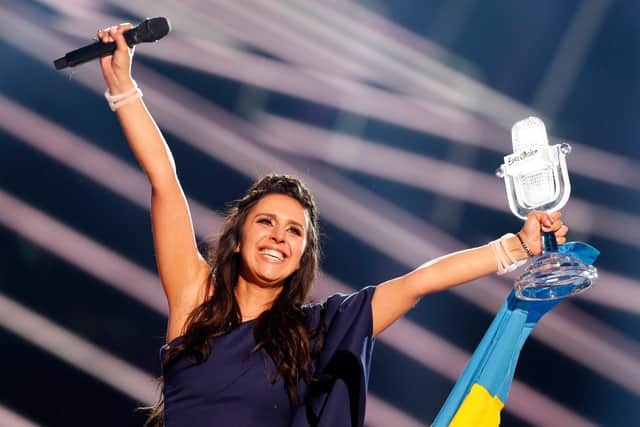

“There’s a symbolism in Ukraine performing but also in Russia not being allowed to compete.
Advertisement
Hide AdAdvertisement
Hide Ad“Eurovision is incredibly popular in Russia, and Eurovision often tries to steer away from any kind of political controversy.
“I think they have done the right thing in the exclusion of Russia and the non-platforming of Russia in a way. After releasing the statement in which they said that it wasn’t a political organisation and it was a TV show, they read the room and realised they needed to take action.
“That’s really powerful, but it’s also given the EBU a bit of a challenging situation moving forward.”
Eurovision’s desire to remain non-political in the past has landed the contest in hot water in the past.
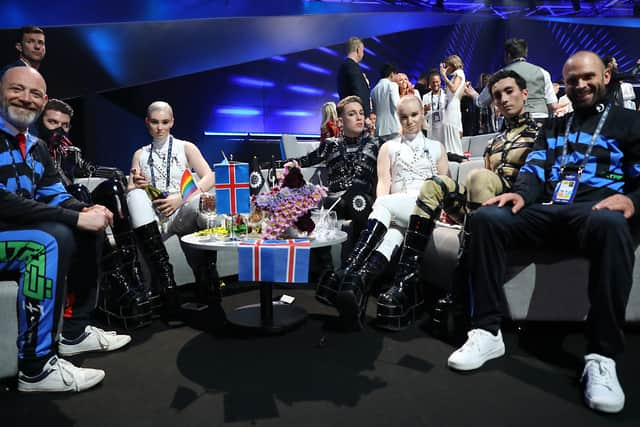

Advertisement
Hide AdAdvertisement
Hide AdFor example, in 2019, Icelandic band Hatari was removed during the results process for holding up Palestinian flags in the middle of the Tel Aviv venue, with the Icelandic delegation fined for the incident.
The band, who placed third in the final results, gave vocal support for the Palestinian people, but also condemned the reaction of the organisers, who also received criticism from the public for removing the band.
“Eurovision’s ‘no-politics’ rule has sometimes got them into tricky territory, so I think they have done the right thing this time,” says Paul.
“Where they go from here will be interesting as well, because it’s almost like they’ve admitted that it is a political event. Politics does come into it, and sometimes there is a right and a wrong.”
Advertisement
Hide AdAdvertisement
Hide Ad“I don’t think they’re going to be a kind of ‘UN’ or international guardians, but I think they’re definitely going to have to acknowledge the wider political context.
“They will try to do all they can to keep it non political, but they’re going to move forward. I think they’ll acknowledge it and they have to acknowledge it.
“There is a special role actually in Eurovision if politics comes into it. How special is the fact that we have these countries with political challenges and yet they’re willing to still take part and to be on that same stage. I think that’s a really powerful message.”
Comment Guidelines
National World encourages reader discussion on our stories. User feedback, insights and back-and-forth exchanges add a rich layer of context to reporting. Please review our Community Guidelines before commenting.
